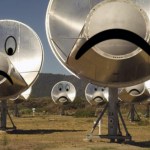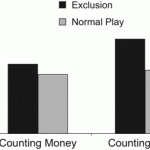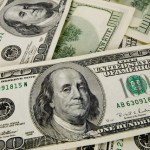Money
Here is the single biggest question to consider about the economic, energy and environmental unwinding we are facing - what will the economy look as we go? I get more questions about this than about anything else - what should people do for work, what should they do with savings, how should they begin to prepare themselves for a lower energy world. What I find, however, is that among both the prepared and the unprepared, there's a whole lot of people kidding themselves. There are those who imagine that there is no economy outside the world of the stock market and formal jobs - that a crash…
As you may have heard, SETI is in trouble.
Funding cutbacks on a state and federal level have forced the Allen Telescope Array -- SETI's new homebase, actually just a part of the U.C. Berkeley's Hat Creek Radio Observatory (HCRO) -- into indefinite hibernation. With U.C. Berkeley losing ninety percent of its NSF University Radio Observatory money this year, and the growing California budget shortfalls, the hunt for extraterrestrial life has simply, and pragmatically, fallen by the wayside.
This financial deficit particularly smarts because the Allen Telescope Array was just about to…
Wow! Either it's an odd coincidence, or the Latisse marketers are highly vigilant monetizers, because in less than 24 hours after I posted yesterday's rambling little piece about the eyelash wonder drug, a tasteful little ad for it showed up on the Scienceblogs homepage (cue spooky music now). Robot voice: "Oh yes, I will go buy Latisse now." I will try it on my cats, because I have always thought that cats with long eyelashes are wickedly beautiful.
But, Latisse, your ad says "ask your doctor about Latisse" -- I'm a bit disappointed. How could you pass up such a ripe possibility for pun…
While reading through the science news headlines today, I came across a very interesting one from the Telegraph: "Handling cash 'better at killing pain than aspirin', study claims."
Intrigued, I sought out the paper mentioned in the article. It turns out it wasn't published recently at all - it was published last year in June. Of course, they were probably fooled by the fact that the University of Minnesota just published a press release on it. Regardless, the real question is whether money was truly more effective than painkillers at preventing pain. So what did the researchers find?
The…
Open Secrets has data on members of the House and Senate in relation to their net worth. Here are some descriptive statistics:
Democrats & Republicans:
25th percentile = $228,006
Median = $791,004
75thth percentile = $2,962,519
Mean = $6,438,210
Republicans:
25th percentile = $269,007
Median = $999,381
75thth percentile = $3,421,512
Mean = $6,010,456
Democrats:
25th percentile = $217,001
Median = $718,756
75thth percentile = $2,516,033
Mean = $6,731952
Let's limit to those who have positive net worth (greater than zero) and less than $50,000,000. This is about two standard deviations…
3 Quarks Daily, a fantastic blog which covers everything from science to art to politics, has annouced that it will start giving out "best of the year" awards for blog posts from around the internet. The Science category starts now, with nominations being accepted until June 1st. There will then be public voting on the winners, narrowing the expansive list to 21, and then a panel of judges will further whittle them down from 21 to 6, with the top 3 winners picked by an expert and announced June 21st. The 'Top Quark' gets $1000 - so it's definitely worth being entered in!
I know a lot of you…
This appears to be from a graphic novel called The Unknown. But I happen to think it's the ultimate all-purpose illustration for every discussion of science policy ever.
I want it on a T-shirt!
via io9
Money has subtler benefits beyond the ability to buy lavish goods or luxurious services - it's also a psychological and physical salve. According to research by Xinyue Zhou from Sun Yat-Sen University, handling money can soothe the sting of social rejection and appease the physical pain of hot water. Even bringing up the mere thought of money can have these effects.
Popularity matters to social animals like humans, who rely on each other for our wants and needs. Our dependence on each other makes it important to get along with our peers. But in many societies, money can bypass that need,…
Stop wastin' my time.
You know what I want.
You know what I need,
or maybe you don't.
Do I have to come right flat out and tell you everything?
Gimme some money!
My fellow Americans, are you impatient about getting your "stimulus package" from the government? First off, a lot of people are going to be getting $300 instead of $600; and I gotta now right now! So go here to have the IRS calculate how much money you're getting first.
Then, you'll probably want to know when you're going to get your money! This is important stuff, people; we rarely get benefits just for being working Americans,…
"This planet has - or rather had - a problem, which was this: most of the people living on it were unhappy for pretty much of the time. Many solutions were suggested for this problem, but most of these were largely concerned with the movements of small green pieces of paper, which is odd because on the whole it wasn't the small green pieces of paper that were unhappy." - Douglas Adams
In this pithy paragraph, the sorely missed Douglas Adams sums up a puzzling paradox of modern life - we often link happiness to money and the spending of it, even though both proverbs and psychological surveys…



